The BMW N43 is the naturally aspirated 4-cylinder engine developed by BMW, which has a straight-four layout, so it is a grad-four engine. Though this is a simple engine, it’s a 4-cylinder engine, however, if not taken care of properly and maintained, it can prove to be very costly. The N43 engine made a splash replacing the old N46, and this new direct injection is one of its current attributes. N43 was on BMW cars from 2006 to 2013.
With the N43 BMW engine having tremendous issues and being offered in different versions and power configurations, the N43B16 and N43B20 were included. The B16 engine was the first successor to the N45 engine, Valvetronic was ditched as it was very unreliable and widely regarded as the destruction of many BMW engines of that era. The N43 was also not widely favored, as it did not have a lot of upgrade potential when compared to other engines in BMW’s lineup, such as the N54, or other offerings from manufacturers like Honda with the K20.
Affected BMW Models
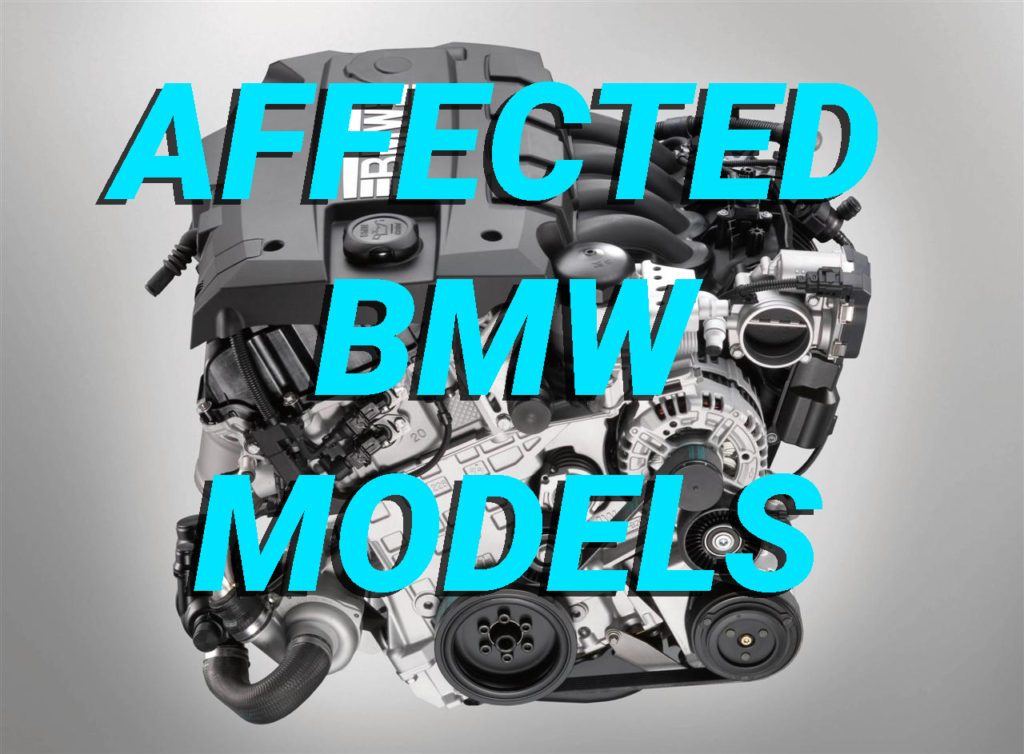
BMW N43 engine problems for the following BMW models… check below:
BMW cars equipped with the N43B16 engine:
2007-2009 E87 116i BMW 1 Series ( BMW N43 Engine Problems )
2008 E90 316i BMW 3 Series ( BMW N43 Engine Problems )
BMW cars equipped with the N43B20 engine:
121 bhp version:
2007-11 E87/E81 116i BMW 1 Series ( BMW N43 Engine Problems )
148 bhp version:
2007-2011 E90/E91/E92/E93 318i BMW 3 Series ( BMW N43 Engine Problems )
2008-2011 E81/E87/E88 118i BMW 1 Series ( BMW N43 Engine Problems )
168 bhp version:
2007-2011 E81/E82/E87/E88 120i BMW 1 Series ( BMW N43 Engine Problems )
2007-2011 E90/E91/E92/E93 320i BMW 3 Series ( BMW N43 Engine Problems )
2007-2009 E60/E61 520i BMW 5 Series ( BMW N43 Engine Problems )
BMW’s N43 was an unreliable engine that exhibited many problems, like worn coil packs, oil pumps, injectors, etc. The problem would worsen with issues like difficulty in starting the car, low gas mileage, and sometimes, the dreaded timing chain breakages. So, all the BMW N43 engine problems are below:
BMW N43 Engine: Low Oil Pressure Problem
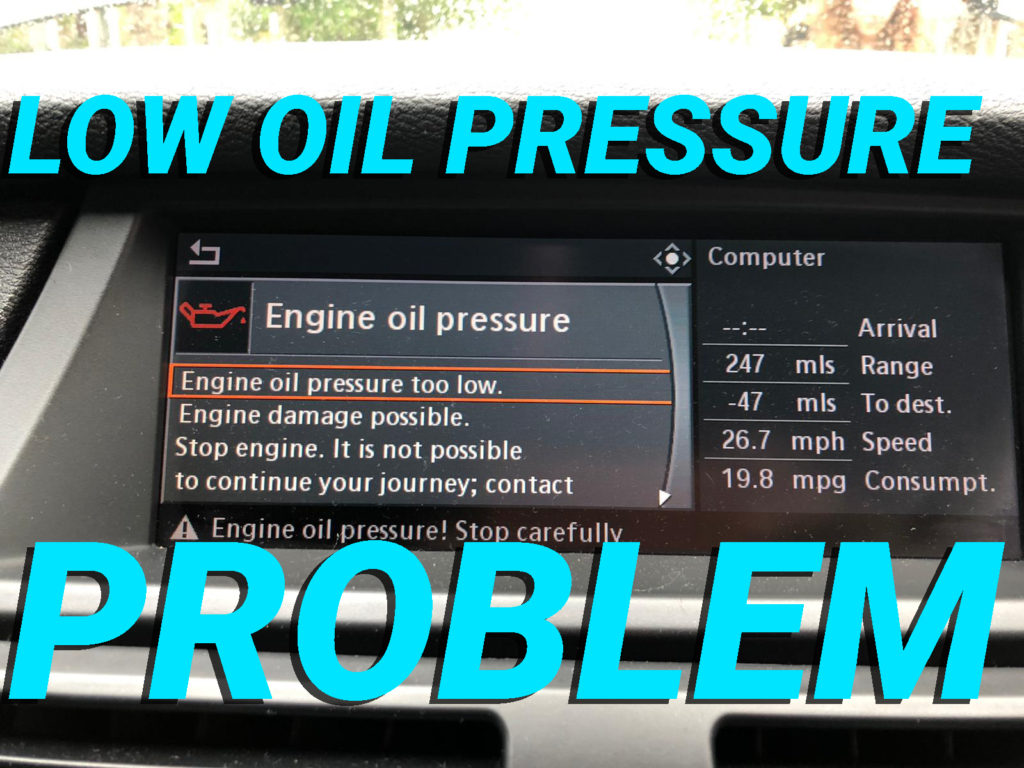
An oil pump transfers oil to all the parts where contact is made between metal surfaces; as a result, it reduces friction between those surfaces, thus preventing them from locking and forcing the engine components to open. The failure of a poor or ineffective oil pump will have a negative impact when it is akin to the flow of oil in the engine. As for the BMW N43, the engine can exhibit oil pressure problems that can be of different levels—minor or major. For the latter, unfortunately, you will have to maintain the engine with a lot of precision. Firstly, the fundamental historical facts. In any car, if there is low oil pressure, it can be because of an oil filter that is too old, along with the oil, which can be too old. The solution is just changing the oil and filter to make the car run smoother. The old oil can also strain the oil pump, which in turn produces damage and is an expensive situation to stop an engine from breaking down due to a failed oil pump that does not pump oil around the engine for a smooth flow and tends to lock up the engine. Although this is not a common engine, the battered engines of the N43 are also in moderate condition. Many of them have ended up as scrap because of the exact reasons that hinder the performance of the N43. Definitely, one of the business owners’ nightmares is the presence of an unknown issue.
The low oil pressure problem in the N43 can also be caused by failing timing chains, which are made of plastic that can break over time and become brittle. The bits of plastic can fall into the oil sump and then clog the oil pump, which leads to oil starvation in the engine which eventually causes the engine to seize. The engine has to be replaced and replacement engines can cost upwards of $5,000 USD. BMW could have used a better material, plastic for the guides or used a different material altogether to avoid problems, but they chose to use brittle plastic, which is what led to the downfall of many BMW engines and components that would otherwise be very robust. This isn’t the only place where BMW has used low-quality or inferior parts in many of their cars, such as the BMW X5 or 5 Series.
A timing chain job is to synchronize the rotation of the movement of the camshaft and the crankshaft to make sure they are working within the timing specification for the engine. If the timing is incorrect or off, which can be caused by worn-out timing belts/chains, the engine will suffer catastrophic damage. Timing chains are often preferred over timing belts, as they last longer and are more durable Although timing chains are far more complex when compared to belts, timing chains don’t have set intervals to be changed, unlike timing belts, as they can last longer, so timing chains have to be visually inspected by a mechanic or a knowledgeable enthusiast every 10,000 Kms.
To prevent this problem, make sure the car is serviced at the correct intervals, which will ensure the chains are replaced and the guides along with them too.
BMW N43 Engine NOx Sensor Error
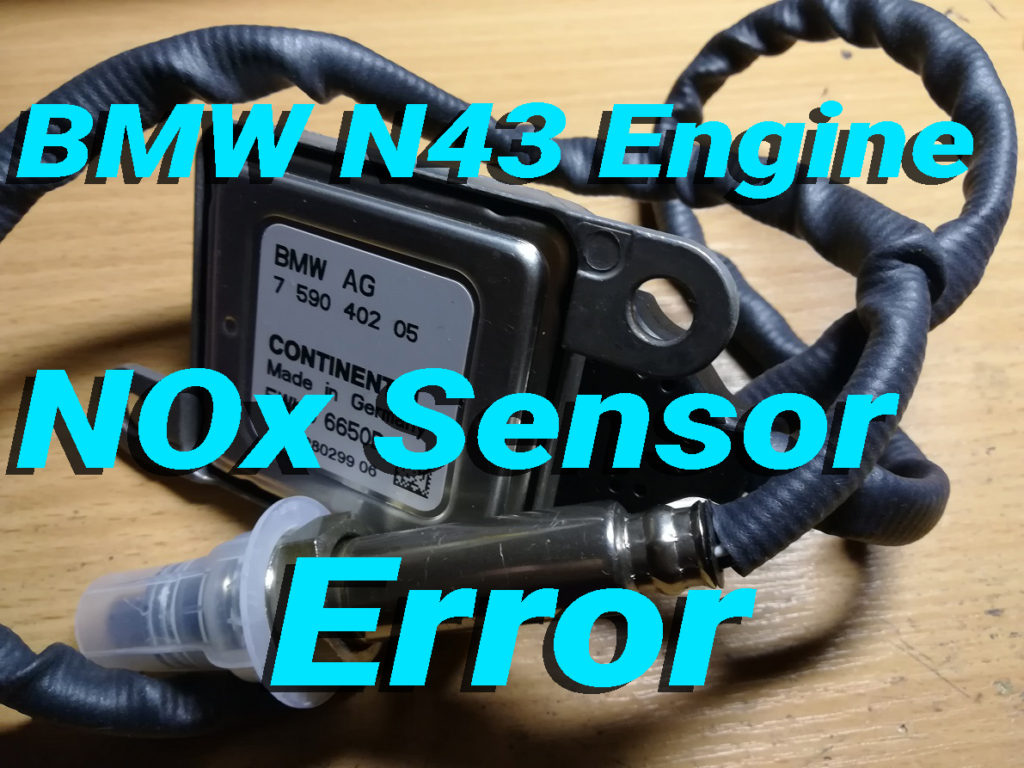
NOx sensors are used to monitor and detect Nitrogen Oxides Another common failure on the N43 is the NOx sensor failing and throwing many codes alongside making the car run very poorly with symptoms such as rough idle, misfiring cylinders, increased fuel consumption, poor emissions causing it to fail emissions tests and overall poor performance, this issue can also be caused by failing catalytic converters, but that is usually on higher mileage cars, the fix for this is to replace the NOx sensor which can cost upwards of 200 USD excluding labor, which can be costly especially as these cars age.
BMW N43 Engine NOx sensor problems… The NOx sensors have also caused many catalytic converters to fail, which is a direct effect of the NOx sensor failure, the car begins to either run very rich or lean, which in turn causes the converters to fail prematurely, catalytic converters to be very expensive to replace, so buying the part used from a scrapyard might help to alleviate some of the costs. Catalytic converts are also a target for thieves as they contain rare materials within them that are of a lot of value once the part has been opened up and dismantled.
BMW N43 Engine Timing Chain Problems
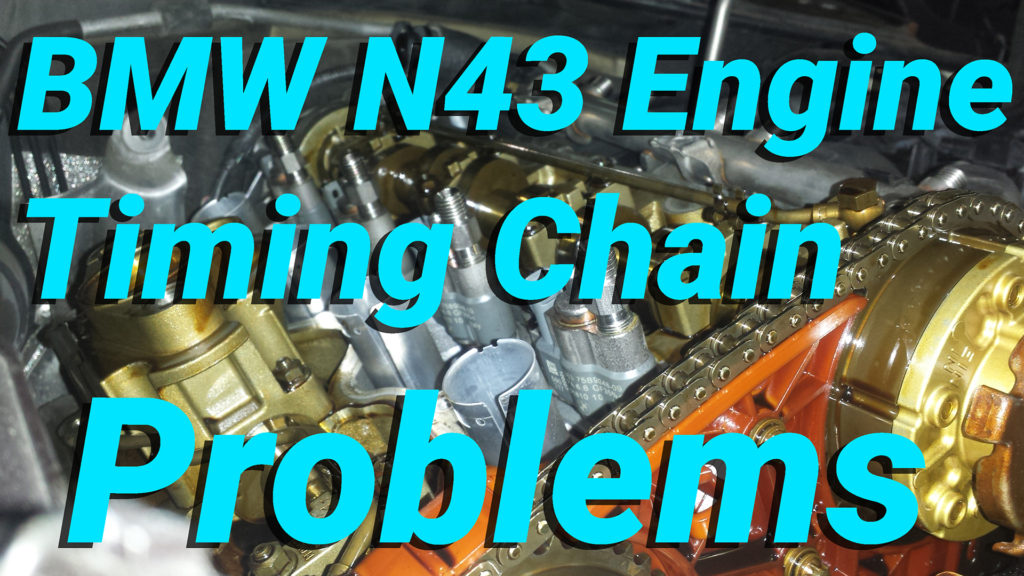
The BMW N43 engines are also notorious for failing timing chains, the chains begin to stretch at relatively low mileages and cause the plastic chain guides to break and flow into the oil pump, which prevents oil from reaching the engine and seizing or destroying the servo pump, also known as the brake booster, both of which can be very costly to fix. The issue can be prevented by checking the timing chain for any slack or looseness. Additionally, costs to fix the problem are very high as the parts themselves are very expensive and the job is very labor-intensive too because the front axle has to be taken out, to provide access to the engine.
Back in the day, BMW launched an initiative to replace the worn-out timing chains of the N43 engines, along with various other BMW engines of that era that suffered from the same issue. The campaign only replaced your timing chain if the service advisors found that your car’s chain was worn, however, many customers reported complete engine failure due to the chains failing after the inspection was carried out, and BMW received a lot of criticism for this. Like most luxury German cars, their engines and drivetrains require a lot of attention to detail and precision work and the N43 engine is part of that as it is found in the BMW 3 Series.
BMW N43 Engine Fuel Injector Issues
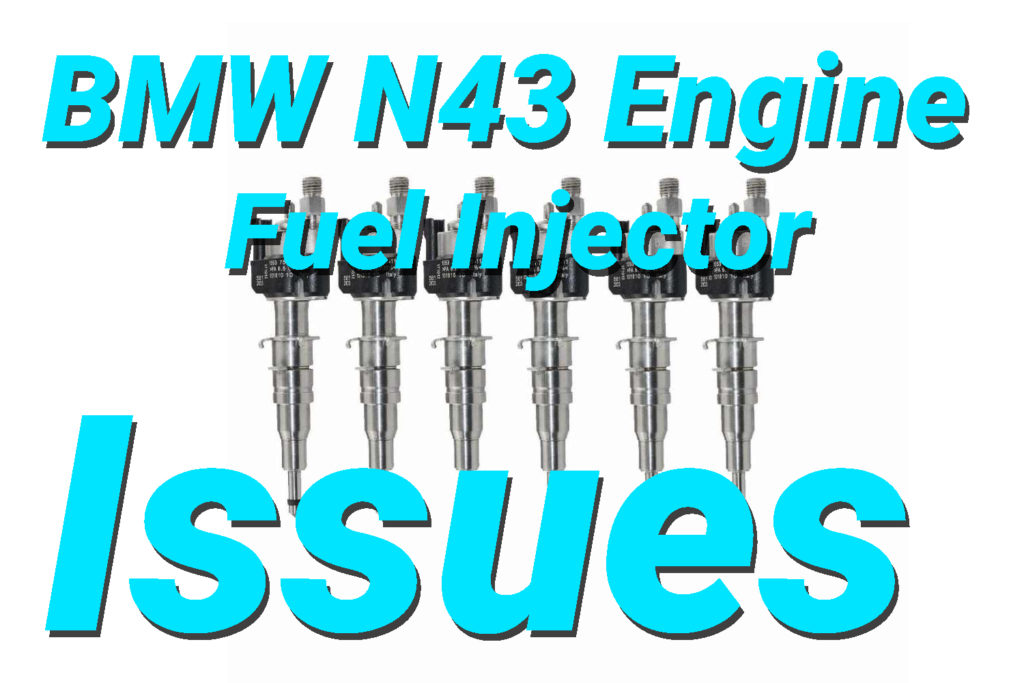
Fuel injectors are among the primary and important elements in your car’s engine, thus giving your cylinders the right boost of high-pressure fuel, which is critical for the combustion process that goes through the cylinders and gives you the energy behind them. When an injector fails, it can suffer from a slew of problems, which are: When an injector fails, it can suffer from a slew of problems which are:
- The car struggles to start, especially when the cold
- Rough idle, irregular idle
- Misfiring cylinders
- Low power
- Engine dying out/stalling
- Partial engine hydro lock due to leaking injectors flooding the cylinder
A very big problem with the fuel injectors of the BMW N43 engine… The BMW N43 engine also suffers from regularly failing injectors, mostly before 100,000 Kms, which can be costly to repair, injectors can also be clogged, which can be caused by poor quality, dirty fuel, and this can also damage your fuel pump in the long run. The issue is fixed by testing all the injectors in your engine and singling out the faulty one out, usually, all the injectors are replaced together, but if you are on a tight budget, just replacing the faulty injectors will do the trick, however, it is more cost-effective to replace them all at once as you will have to pay for labor again, but if you do it yourself, you will be good to go. Injectors can also be purchased if you have a limited budget, but be sure to test them before purchasing as injectors are very fragile and the slightest knock or fall could render them useless.
BMW N43 Engine Oil Pump Problems
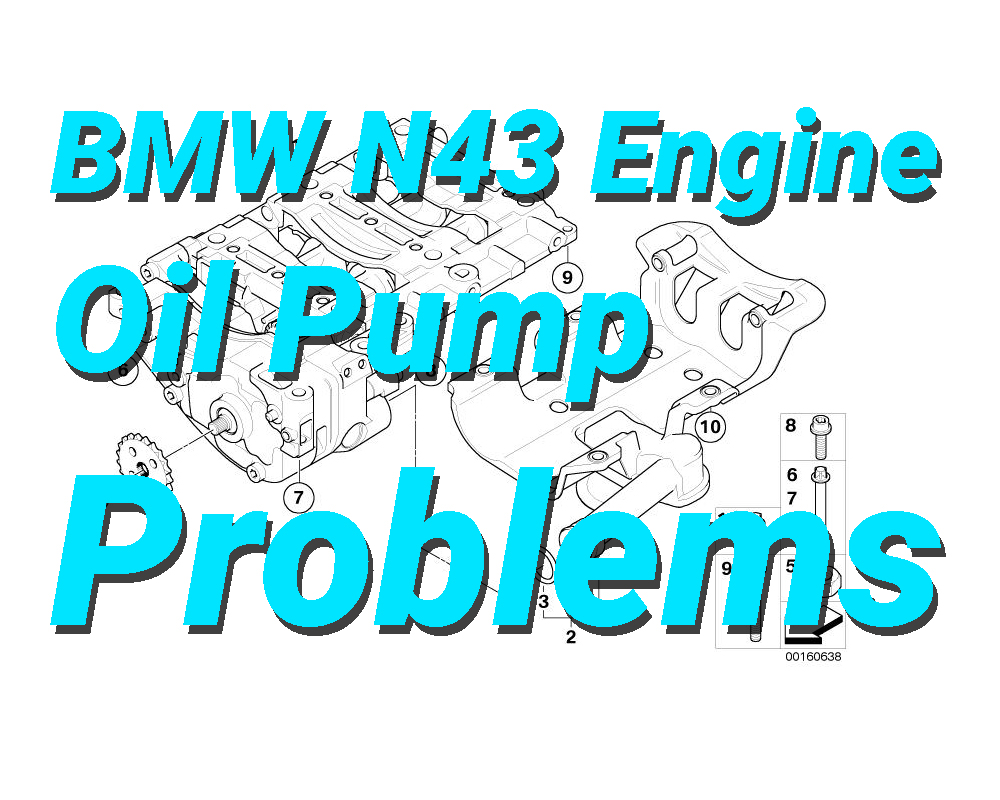
In what seems to be an endless list of poor-quality parts on the BMW N43 engine, yet again another part, which is the oil pump, is a failure-prone part on the N43, early production examples of the N43 had oil pumps that would randomly fail and stop sending oil to critical areas of the engine, causing metal on metal grinding within the engine and eventual engine failure due to internals locking up and seizing, not only that, the oil pump from the factory is notorious for being weak and relatively fragile. Oil pump replacement is very costly as the pump itself is very expensive and the job is very labor-intensive too, 9/10 times the engine has to be pulled out for easy access to the pump. In many cases, engine failure was reported due to high-speed cornering and the oil pump not being able to pump oil to certain areas while cornering, which caused numerous engines to fail, even when the car was relatively new.
This issue, along with a slew of other issues, caused a massive uproar among BMW owners and customers, BMW scrambled to look for a refresh of the N43 which would address all the issues present at the time in the N43. The plan, however, was scrapped as BMW had a massive shift towards turbocharged engines.
The N43 was succeeded by the N13, which was developed in collaboration with PSA and manufactured by French carmaker Peugeot. The N13 engine was far superior, in terms of reliability and performance. The N43 is a very demanding engine, requiring lots of maintenance, despite which the failure rate is astronomically high. Some aftermarket OE parts are available from companies like Bosch, which provides a higher quality part that has the necessary design revisions already done to it to ensure that the part does not suffer from design flaws of the previous revisions.
Conclusion
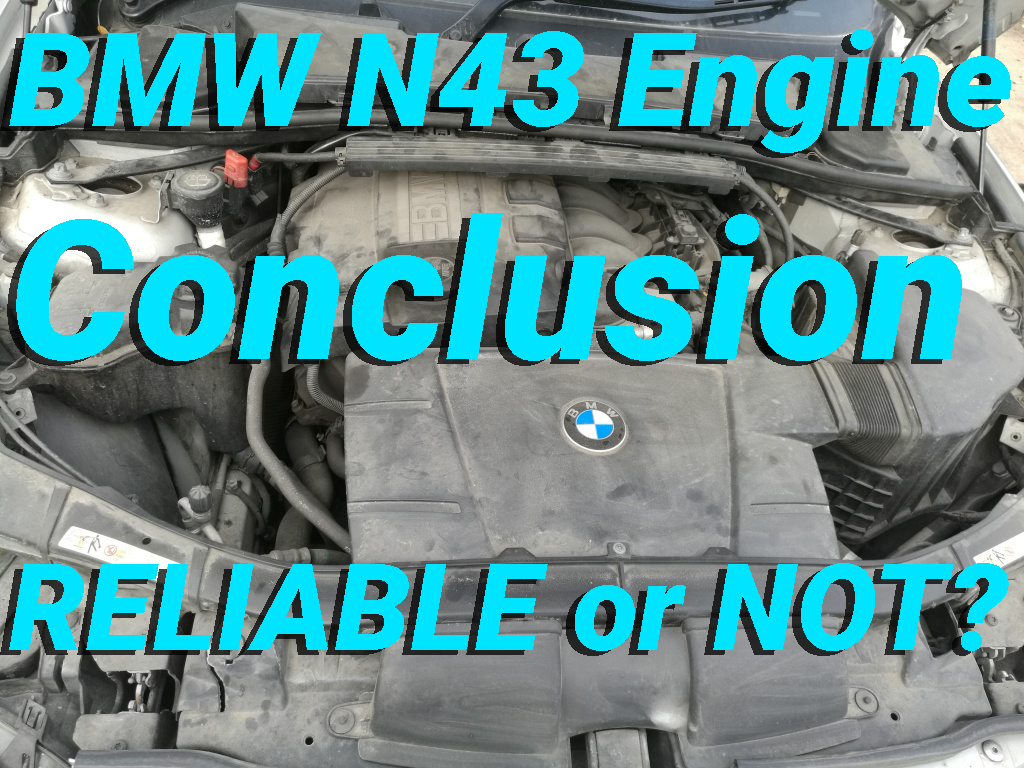
The BMW N43 engine packs a lot of problems and is clearly not a good contender in the name of reliability, it is a huge cesspool of unreliability. Sure you can maintain the engine by carrying out regular maintenance that all cars require, such as oil changes or tune-ups, but even then, the chances of failure are very high due to the flawed design of the N43. Various lawsuits were filed and BMW was sued multiple times after people with mechanical knowledge and understanding of cars finally understood the flawed concepts that were put into motion by BMW and their team of engineers. Multiple attempts were made to remedy the issue, but BMW failed to fully fix the issue, comprehensive attempts were made by 3rd parties to figure out a solution but to no avail.
If you are looking for luxurious alternatives, cars like the Lexus IS, Mercedes C-Class, or Audi A4 go head-to-head against the BMW 3 Series and are far more reliable and easier to maintain, unlike the 3 Series. BMW tried to do something new with this series of engines, they had a good idea, but the execution was exceptionally poor. The successor to the N43, the N13, was BMW’s entry into the mainstream turbocharged engine, it was developed in France by PSA in collaboration with BMW to be used in Peugeot, BMW, and Mini-cars. These same engines were used in many models of Mini Cooper’s offerings, out of which many cars suffered a similar fate, being totaled due to blown engines.







